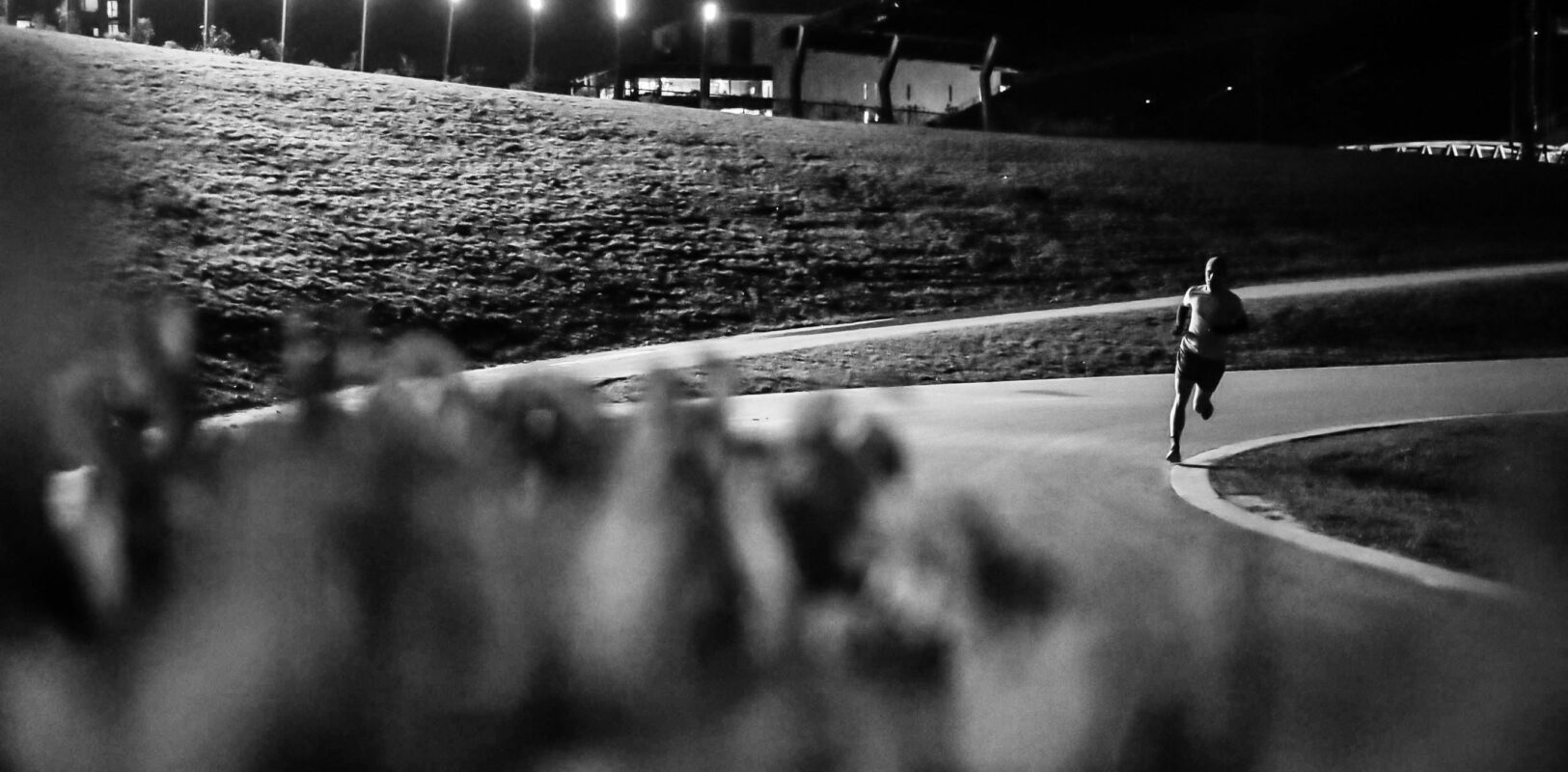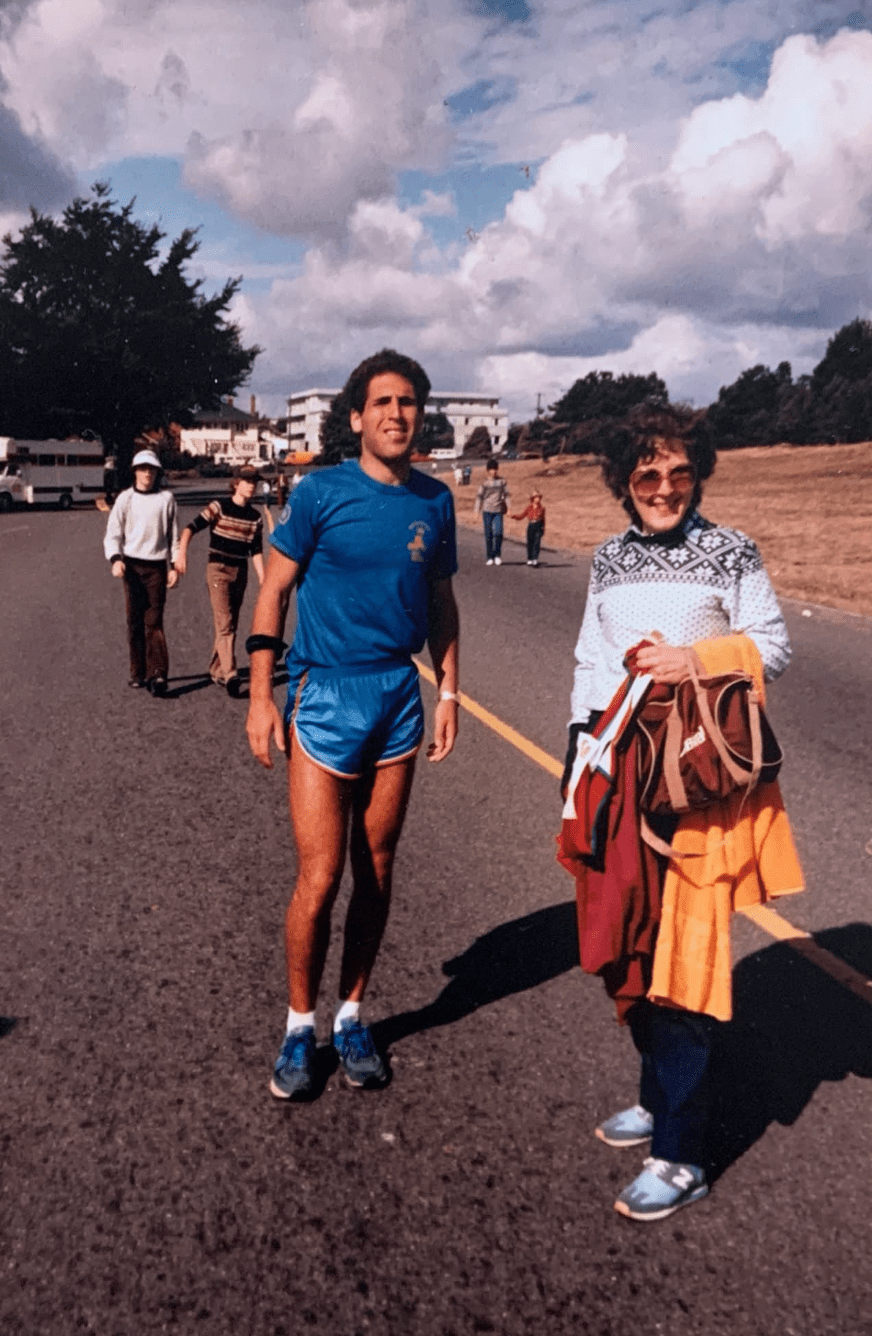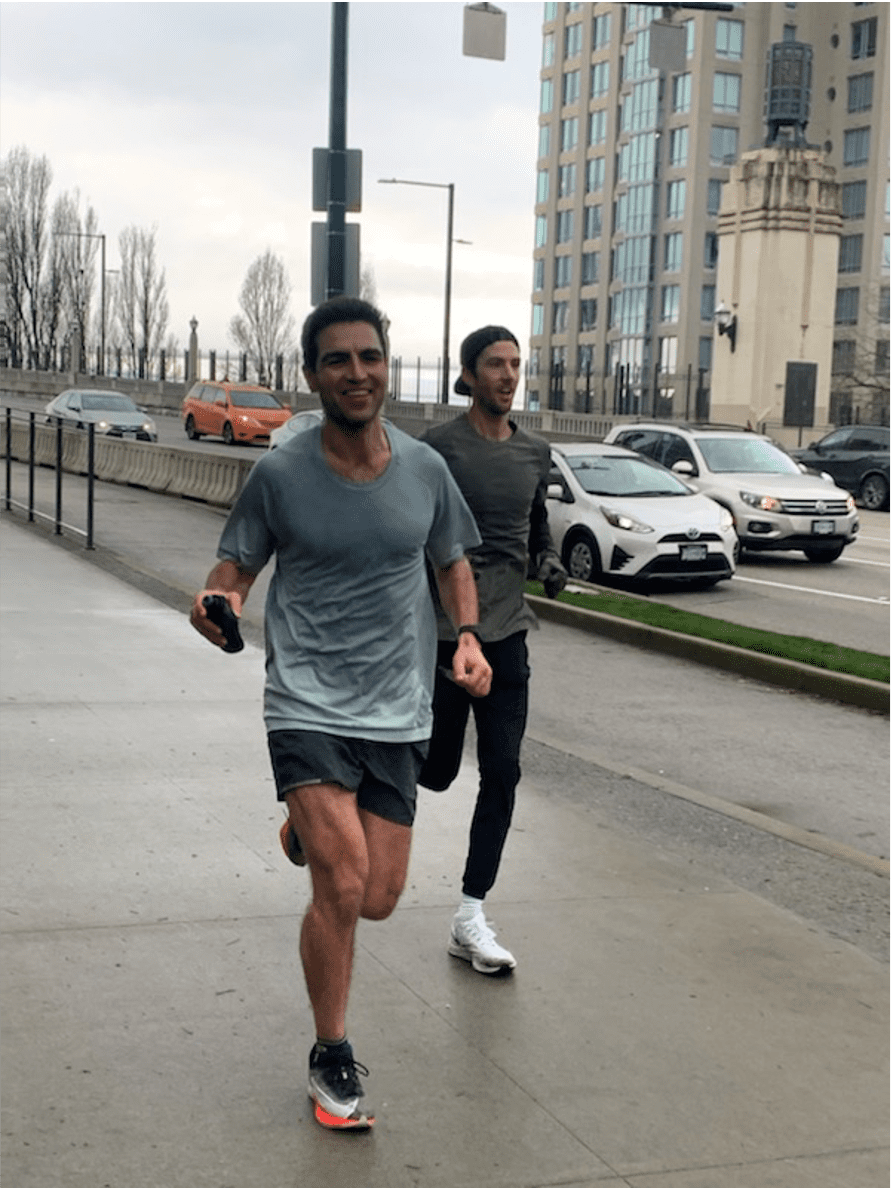
Why I Run? By M2M Athlete Harrison Glotman
M2M Athlete Harrison Glotman shares some beautiful insights from his last marathon and why he runs. Read below for a thoughtful perspective on running and the lessons we can learn from it.
Why I Run? – by Harrison Glotman
I’ve tried and failed four times to beat my dad’s PR of 3:01. My first attempt was the NYC marathon, which quickly made me realize how lofty this goal was. When I entered Manhattan from the Bronx at mile 21, my legs began to move like chopsticks and I felt like the city air had turned to molasses, heavily resisting each stride. It immediately dawned on me – my dad was actually fast. He must be mixed up, maybe he ran a 3:10, not a 3:01? I dug up some old newspaper clippings with results from the 1981 Victoria marathon, and a photo of him sporting short blue shorts and an afro; evidence for what would become a six-year pursuit…. 3:01:31. Great! I have a few more seconds than I thought to spare.
When I crossed the line in New York, my legs immediately seized up. I started to shiver and we had to walk another 1km out of Central Park, alone with our thoughts, before being greeted by our supporters. I expected to feel ecstatic after such an accomplishment, but I felt broken and empty. I felt like I had been beaten up in a bar, only the perpetrator was myself and my unwavering will to keep pushing. Unless it was for something meaningful, like running from Athens to Marathon to alert of an incoming attack, I promised to never race 42.2 kilometers again.
So here I am again, six years later, about to run my 5th marathon, and this one is actually of my own devise. With no official events in sight due to COVID, I decided to map a route and go for it on my birthday. At first, it seemed like a great idea. In the week leading up I was filled with angst, reminded of all my failed attempts and the pain and disappointment that followed. Again, the questions of why?! reverberated through my head. What I’m beginning to understand is that running is much more than the physical act of putting one foot in front of the other, or a silly egotistical battle with my dad.
On my birthday, I was finally victorious with a time of 2:58:03! I can share the journey of the race, describing in detail how I felt at each kilometer, but that would be boring and self-indulgent. The marathon is not really about the actual race. After all, it is just a person using an outdated form of transport to go outrageously far for no apparent reason. The marathon, and running in general, is all about the lessons that come with it – at least for me.
Carving out some alone time
To start with, the long run is as ritualistic as going to church or synagogue and certainly has a deeply spiritual element to it. Without music, and alone with my thoughts for 2+ hours allows lots of time for reflection. Sometimes I spend the whole run grappling with my thoughts, and often, I’ll return home with new perspective. Other times my mind is blank, I am present and the beauty of the world just unfolds. The sounds of the Capilano river rushing over the rocks along Fisherman’s Trail, the sight of the effervescent moss-covered trees along Spur 4 Trail or the smells of the ocean at Jericho. In a world filled with distraction, it is important to carve out some time to be alone and present.
The little things that motivate you every day are the ones that matter
Like all goals, mine began with an emphatic statement and a measurable outcome, “I am going to beat my dad.” At some point along the way, it was not about that anymore. Once the wheels are in motion, it’s critical to find other motives along the way. The little things that motivate you every day are the ones that matter, like getting in the trails or mountains on a beautiful day, or having meaningful conversations running with a friend. Finding enjoyment in the little things is the key to success. Obsessing about the outcome gets you nowhere. My successful marathon attempt actually spontaneously grew out of a few unstructured months of running with friends in the mountains with no real end goal in sight.
Thinking too far ahead is staggering and overwhelming
When I thought too far ahead in training, it was staggering and overwhelming. By just focusing on the commitment to myself that morning – the 10km aerobic run or showing up to practice – I suddenly found my legs much stronger and the end goal not as daunting. During training, I did several 32 km runs, took a shower, and went on with my day. Not too long ago, if I ran 32km, my stomach would have been in shambles, my legs distraught, my muscles screaming, and a nap would have been essential.
With my legs feeling this good, I start thinking about the other facets of my life with similar potential. If my legs can do this all of a sudden, what other facets of my life can I grow and develop, in the same way I approach running? How can I break down goals in my career or personal life into smaller, daily commitments? Progress is shy and secretive, it slowly creeps into your life one day at a time, until one day it decides to rear its head in an exciting achievement.
Patience is key, we have 41 of these to go
During the race, nothing is more critical than being patient. In the first few kilometers of the race, I felt good and wanted to speed up. If I were in a normal marathon, fueled by the crowds and other racers, I would have. I turned to Rob and asked, “should I try to bank time now since I tend to inevitably fall apart later.” Rob replied, “I’ve done enough of these now to know that patience is the key. We have 41 of these to go.” I followed his advice, stayed steady, and shattered my belief that the body will always fall apart at that distance. I ran the second half faster than the first. In life and in your career, it is important not to get too far ahead of yourself. Stay patient and steady. Revel in the downhills because there is always an uphill just around the corner.
Be in this kilometer
Last Vancouver Marathon, when I saw Stanley Park from Jericho and dwelled in how much further I had to go, it was the beginning of the end. Few sports test mindset and presence as much as running does. When it hurts, I have learnt to turn inwards, listen to my breath, feel the muscles working in my legs, and focus on the cold air moving in and out of my lungs. When you are focused on how you feel in that moment – not in anticipation of 2km or 5km from then – you realize all is well. “Be in this kilometer” was the mantra that echoed in my head the entire race.
So does it feel good now to turn to my dad and emphatically say “I beat you”, with a smug smile on my face? Absolutely! I would be lying if I said it didn’t. But in all honesty, I am just grateful for the sport of running and all that it has taught me along the way.
 Rob Watson
Rob Watson
